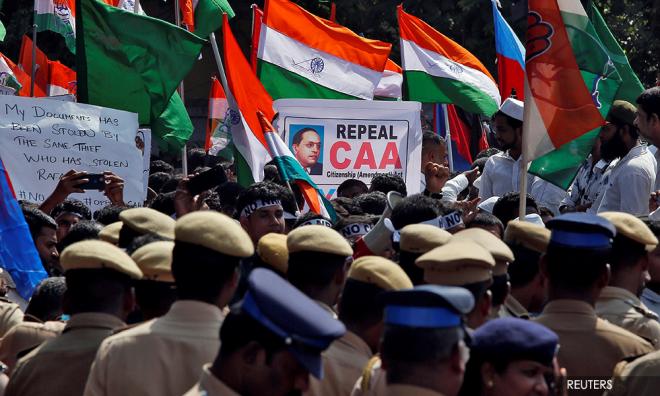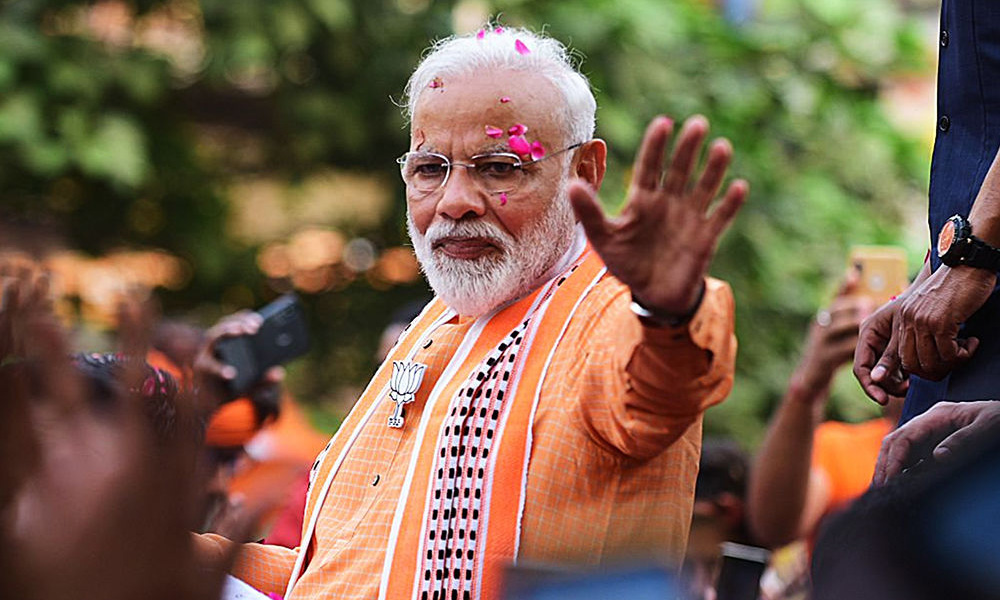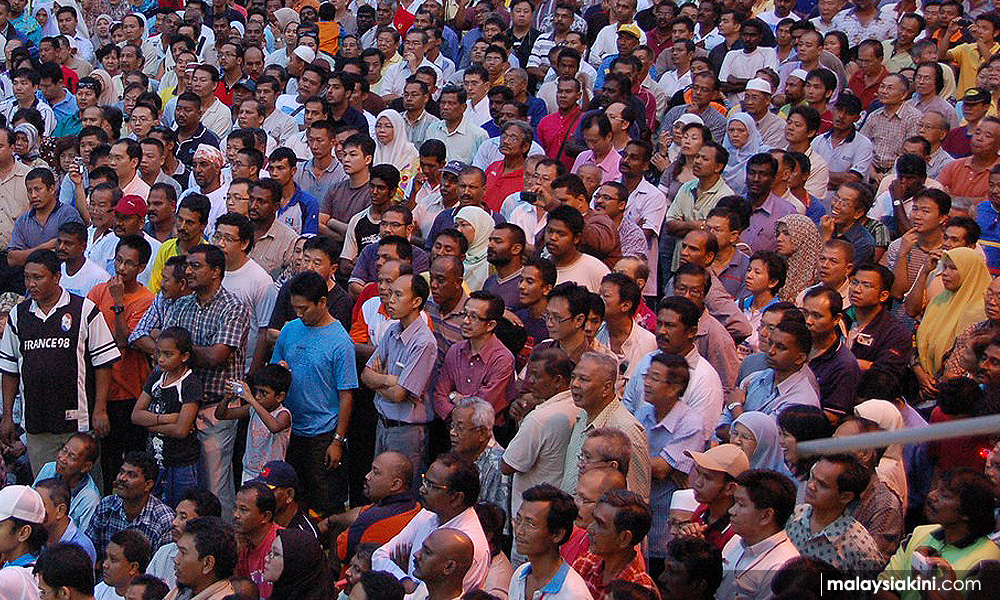
“Let me assure you that my intent is not to offend or merely be provocative. I'm simply worried.”
- Sam Harris
Non-Muslims are constantly told we live in an Islamic state. While the late Karpal Singh and a host of others may disagree, the mainstream narrative of politicians is that we are an “Islamic” state.
If you are one of those people who disagree with this statement, good luck to you because, these days, political operatives who would disagree with the idea that Malaysia is an Islamic state are hiding somewhere.
We live in a country where non-Muslims cannot use certain words. Each state has its own list of words verboten to non-Muslims. We live in a country where Jakim (Islamic Development Department) recently stated that it is “not compulsory” for Muslims to participate in interfaith prayers.
We live in a country where mainstream Muslim politicians scream about Islamophobia but get away with saying that non-Muslims have to be pak turut. We live in a country where unilateral conversion is thought of as the right of the majority.
P Ramasamy recently wrote that the prime minister backs secular principles when Muslims are a minority. The reality is that the Muslim political elite and a majority of Muslims in Malaysia who have no issue with their racial and religious privileges use “Western liberal” principles to uphold the rights of Muslims where they are a minority.
“Ketuanism” extends to Dong Zong having to cancel its congress while agents of the fascist state enjoy protesting against the International Convention for the Elimination of Racial Discrimination (Icerd), holding a dignity congress, Zakir Naik confabs and of course, holding rallies threatening non-Malays with violence if their (Malay) “rights” are threatened.

So when the Narendra Modi (photo) regime coughs up something like the Citizenship Amendment Act (CAA), which blatantly goes against fundamental Western “liberal” positions, there are many minorities who live in Muslim majority countries empathising with this law.
Unlike the cosy liberal objectors to this law, they understand how it is living in conditions where your hard work and effort are used against you or are used as a justification of how good you have it (as a non-Muslim) in a Muslim majority country.
When Malaysian Indian groups objected to Zakir, for instance, this prompted Perlis mufti Mohd Asri Zainul Abidin to send a poem to the prime minister of India and say this about the Hindu community – “Here, they never thanked for what they have. Instead, they colluded to cause trouble. We cannot remain silent; tolerance and patience have its limits”.
Observe how Asri, like many other fascists, wants to be thanked for existing in a country that the minorities helped construct. Even our current prime minister acknowledges that non-Malays built this country – cities towns, the infrastructure – and did not have the privileges that Malays have but were successful. Then again he thinks the Malays are lazy.
Why all this talk of moderation and religious pluralism? It is all political theatre. Keep in mind what Selangor Islamic Religious Council head honcho Mohammed Khusrin Munawi said of the High court ruling on the Selangor state fatwa on labeling Sisters of Islam deviant - "mana-mana individu, pertubuhan atau institusi yang berpegang kepada fahaman liberalisme dan pluralisme agama adalah sesat dan menyeleweng daripada ajaran Islam (any individual, organisation or institution that holds to liberalism and religious pluralism is deviant and straying from Islamic teachings)".
Learning about culture is a one-way street
When I was younger I was known as somewhat of an amateur Arabist. My military education and association, both formally and informally with the Indonesian security apparatus, not to mention security concerns, naturally contextualised my interests in a specific region of the world.
However, these days I tend to roll my eyes whenever I see non-Muslim politicians going on about the plight of “oppressed Muslims” in various parts of the world or demonstrating solidarity whenever a tragedy occurs to Muslims in Western countries. Nobody is outraged when Christians were slaughtered in Sri Lanka or when minorities are oppressed in Muslim majority countries.
Of course, we are supposed to be a “moderate” Muslim country, hence any objections to the Islamisation of our public and private spaces are met with scorn by the very people who would object to “Western” interference of the private and public spaces of Muslim minorities in other countries.

Learning about culture is a one-way street in Malaysia. The non-Malays have no choice but to learn about Malay culture, while the Malays get to retreat to a mainstream political system that claims that their culture, their economic survival and their political system is under threat because of the non-Malays – which generally means the Chinese community.
What exactly does “moderation” mean? Most Malaysians, especially non-Malays and non-Muslims, define it as the middle ground between the religious and racial politics of the majority and the “rights” of minority communities. Moderation has nothing to do with secular governance, nor does it have anything to do with egalitarian policy. Most of the time, it is political rhetoric.
Fa Abdul says that our tolerating nature is our weakness. The problem is not our tolerating nature, but rather our political system that gives no options to express our rejection of Islamic policies that intrude into our private and public spaces.
We demonstrate our intolerance of policy or ideology by voting for people who would represent our dissent. Unfortunately, the politicians seem to have left the field and in their place are banners with their faces on them.
Folks blame Mahathir for our problems and he is certainly part of it, but this distracts from the fact that, as Liew Chin Tong reminds us, that half of the population did not vote for Harapan. The problem is that Harapan has no interest in fulfilling its campaign promises to the half that voted for them.
Instead, like the cops who stopped Fa Abdul’s play, they are more interested in appeasing the side which is the cause of the problem, instead of the side which is exercising their democratic rights in an attempt to forge a new Malaysia.
I am not attempting to create a victimhood narrative, but you cannot use secularism when it is convenient and you have to understand why some – I use some because I do not want to speak for every non-Muslim – understand the need for this law, even though it goes against principles that would be wanted in place here.
We get the country we deserve.
S THAYAPARAN is Commander (Rtd) of the Royal Malaysian Navy. A retired barrister-at-law, he is one of the founding members of Persatuan Patriot Kebangsaan. - Mkini



No comments:
Post a Comment
Note: Only a member of this blog may post a comment.